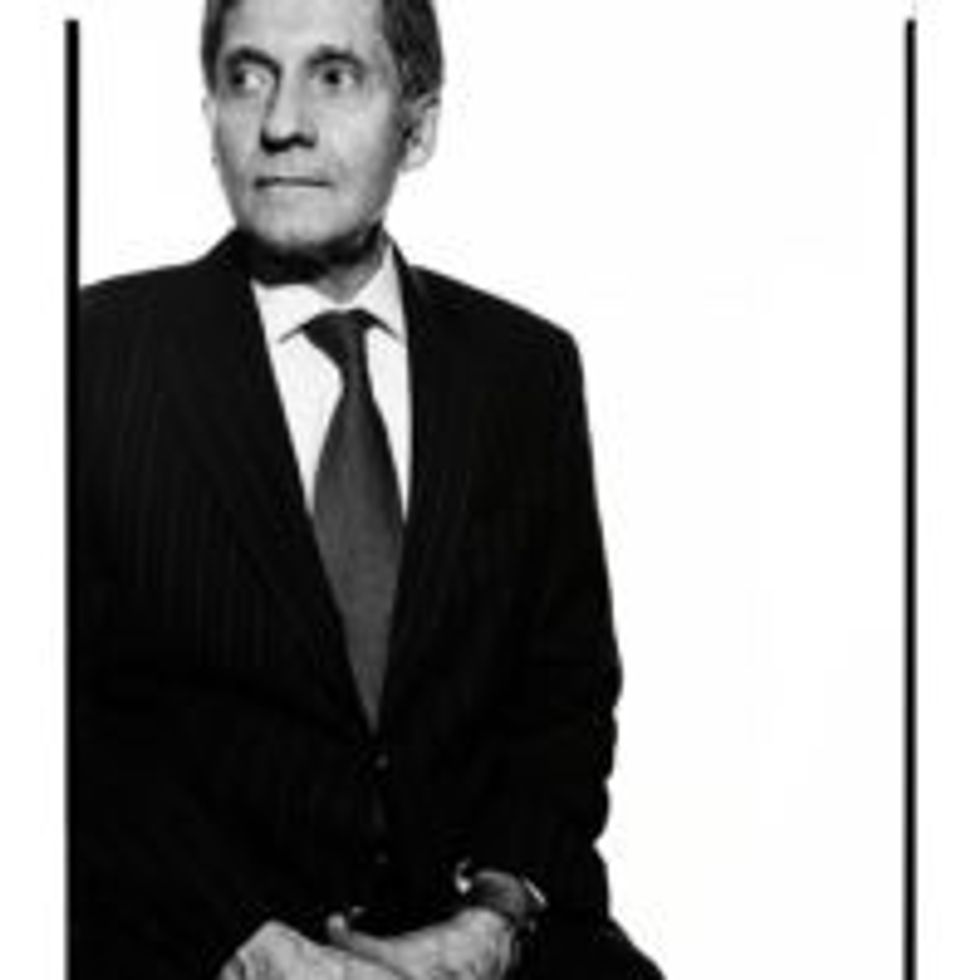As Russian troops continue to bombard Ukrainian cities and the Ukrainian government reports more than 2,000 people killed since Russian President Vladimir Putin’s invasion last week, alliances – both formal and informal – are shaping a new post-Ukraine, world order.
As Russia - the world’s third largest superpower – faces condemnation, crippling sanctions and isolation from global financial systems in moves largely led by the world’s leading superpower, the U.S., China – the world’s second largest superpower and Russia’s largest trading partner - has opposed sanctions and remains the only world power that the Russian President can rely on.
While U.S. President Joe Biden has been cautious in his criticism of Beijing’s position on Ukraine, he has sent a delegation of former officials to Taiwan in a show of continued U.S. support as Taiwan steps up its alert level over fears of a Chinese invasion.
Meanwhile, China’s top diplomat in the U.S. is calling on Washington to improve ties amid tensions over Taiwan and trade issues.
Bottom line: Regardless of its diplomatic stance, China is seen by some observers as drawing lessons in how the Ukraine confrontation unfolds for its own actions vis-à-vis Taiwan. More broadly, the unity expressed in the West over Russian actions in Ukraine and the trendline in closer China-Russia ties is sparking speculation that a world-order-altering alliance may be in the making.
Background:
- China’s Banking regulator on Wednesday, said Beijing is opposed to the heavy financial sanctions that are being levied against Moscow. He also said the sanctions have had no apparent impact on China, a statement that has been contradicted in reporting by The South China Morning Post, that Chinese manufacturers are already feeling the pain of the Ukrainian crisis.
- Beijing has offered to negotiate talks aimed at ending the violence, according to China’s Foreign Ministry, at the request of Ukraine’s Foreign Minister.
- China has publicly expressed dismay over the situation unfolding in Ukraine and has said it respects the sovereignty and territorial integrity of all countries.
- China’s internet is filled with references to the Russian President as, “Putin the Great” and “the greatest strategist of this century.” His version of Russia as a victim of the West is resonating as Chinese officials have refused to characterize the Russian invasion of Ukraine as an ‘invasion’. China abstained last Friday, from voting on a draft U.N. Security Council resolution aimed at ending the war in Ukraine.
Cipher Brief Expert Perspectives on the China – Russia ‘alliance’ and the Russia invasion of Ukraine:
Sir Alex Younger Former Chief, British Secret Intelligence (MI6)
I think there will have been an element in Putin's calculation that the non-aligned world wouldn't get in the way and that China would either tacitly or openly support him. When it comes to non-aligned, I was particularly influenced by an incredibly moving speech from the Kenyan Permanent Representative to the UN Security Council where he talked about the terrible consequences of the opening of Pandora's box of borders. It was influential. It made me think that Putin's probably wrong to take for granted the indifference of the so-called non-aligned world. As for China, it just didn't want this to happen. Of course, at the macro level, it's lining up with anything that reduces American [influence] and what it thinks of as the Western rule-based system.
Dick Fadden, Former National Security Advisor, Canada
I would not use the word ‘alliance’. I think their current relationship is tactical, not strategic. President Putin has to be careful what he does in terms of irritating the Chinese. They abstained in the Security Council veto, which is significant because they could quite easily have joined the veto. Their last few statements have called on all parties to act reasonably. I think in the medium to long term, China doesn’t share Russian’s view of the kind of world they want. There is no argument that China wants a different kind of world, but they still want a world with some sort of international order in it. I don’t think that’s high on Mr. Putin’s agenda.
Norman Roule, Former National Intelligence Manager for Iran, ODNI
I would worry about how China plays this. It may decide to exploit this not only for commercial and political reasons with Russia. Taiwan is least likely, but it's a potential. I think Xi Jinping is probably upset by this. He was anticipating going through a party congress that was meant to cement his authority, not spend time worrying about how to handle the Russian issue.
Andrew Ellis, Former Assistant Director of Operations for the Canadian Intelligence Service
The relationship between Russia and China is probably as close or closer than it was at the beginning of the Chinese Maoist Revolution. I think it's something that we need to keep very close track of, because the impact of sanctions is going to be mitigated by their relationship with one another, being a market for each other's products. Russia's inability to acquire technology and support for a lot of their industry can easily be picked up by the People's Republic of China.
Cipher Brief Expert Interview:
The Cipher Brief: Does Xi Jinping possess sufficient standing and influence with President Putin to dissuade him from further military action in Ukraine?
Mark Kelton, Former Deputy Director for Counterintelligence, CIA
No, because Putin is now in a situation where he cannot afford to lose. Given what certainly looks like a failure on the part of his intelligence services to assess the degree of resistance a Russian attack would meet, and the obvious inability of his military to deliver a quick, relatively bloodless conquest of Ukraine, he has no way forward other than to hammer out something the Kremlin can call a victory. Failure to do so will put his rule at risk. Consequently, he will ratchet up the violence in an effort to force Ukraine to agree to an end to the war on his terms.
John McLaughlin, Former Acting Director, CIA
The real question is whether Xi has made up his mind about what Putin is doing or how to react to it. On the one hand, I think we can be confident that he is not comfortable with it. He does not rejoice that Putin has dealt a mighty blow to the West. He is too smart for that. China has been invaded many times — and claims to be against others doing it. On the other hand, Xi probably takes some satisfaction from the trouble Putin is giving the US. But he has to also notice that this is driving the NATO alliance together and realize that Putin is strengthening the very problem he's complaining about. Besides, China's greatest ancient strategist Sun Tzu said the object is to "win without fighting" — not exactly Putin's approach. So, I think Xi is conflicted. I do believe he has great influence with Putin but has probably not decided how to use it.
Ambassador Joe DeTrani Former CIA Director of East Asia Operations
Putin should listen to Xi Jinping when Xi recommends a more moderate approach with Ukraine, with negotiations and an effort to deescalate the military onslaught. I fear, however, that Putin will disregard this advice from Xi and continue, using even more military might, to accomplish his goal — making Ukraine a vassal state.
The Cipher Brief: The New York Times reported that President Biden tried to get President Xi to step in and dissuade Putin from invading Ukraine and that Biden was rebuffed. Does this surprise you?
Ambassador Joe DeTrani, Former Director East Asia Operations, CIA
I'm not surprised. The tension in the U.S.- China relationship has contributed to a more hardened view in the CCP when it comes to assisting or cooperating with the United States on issues of what we would consider to be of mutual concern, like North Korea and, if this reporting is accurate, Ukraine.
John McLaughlin, Former Acting Director, CIA
It does not surprise me, partly because he's asking, "what's in it for me?" To do that, Xi would have a high price, and I do not know what, if anything, we offered him. We do not have a lot of trade space with China right now.
Mark Kelton, Former Deputy Director for Counterintelligence, CIA
It does not surprise me. The meeting between Putin and Xi during the Beijing Olympics almost certainly included discussion of Putin’s possible attack on Ukraine and how this authoritarian entente would coordinate their actions in dealing with it. Xi almost certainly agreed to support Putin rhetorically, at the UN and in ameliorating sanctions. This is not a surprise. Both see a window of opportunity defined by perceived American weakness and both have actuarial timelines to achieve their respective goals (reassertion of Moscow’s power in former Soviet space and bringing Taiwan under Beijing’s control respectively).
The Cipher Brief: How might you expect China to continue to “thread the needle” between an enduring and mutually beneficial relationship with Russia, and pursuing its other diplomatic, economic, and military interests? And what could happen when those interests collide?
Ambassador Joe DeTrani, Former Director East Asia Operations, CIA
China is "threading the needle" with Russia's invasion of Ukraine. It's important for China to maintain good relations with countries in the European Union and with Eastern Europe and Central Asia — and also Ukraine, a member of China's Belt and Road Initiative and an important trading partner. This is no time for China to be viewed as a pariah state, and if China wholeheartedly supports Putin's invasion, with more Ukrainian civilian casualties, it will be hard for China not to suffer the consequences of providing Putin with this support.
John McLaughlin, Former Acting Director, CIA
Threading the needle between its interests with Russia and China's other priorities is going to get harder and may ultimately be impossible. What Putin is doing, given the global condemnation, is not a great advertisement for the kind of model Xi and Putin represent and which they advertise as superior to the existing order. Also, Xi has to be asking himself if the world would react the same way if Chinese forces overpowered Taiwan? Would China draw global condemnation and heavy-duty sanctions? For now, the best that Xi can do is what he did in the U.N. — to abstain. Neither endorse nor condemn. Ultimately, I'd bet he moves more overtly toward censuring Russia's action in Ukraine.
Mark Kelton, Former Deputy Director for Counterintelligence, CIA
China will back Russia until such point as that support impacts crucial Chinese interests. At that point, China will push Moscow to reach some sort of accommodation in Ukraine.
The Cipher Brief: Despite its objections to “unilateral sanctions without international mandate,” will China’s economic ties to Europe and the U.S. force Beijing to some level of compliance and enforcement against Russian entities appearing on sanctions lists, especially in banking operations?
Ambassador Joe DeTrani, Former Director East Asia Operations, CIA
As sanctions continue to bite, Putin will look to China as a lifeline for economic relief. China will do its best to assist Putin, selectively and cautiously disregarding sanctions, while still trying to protect its banks and state-owned corporations, which means Beijing will have to comply with some of the sanctions. This will be a real challenge for Beijing — helping Russia by quietly not enforcing selective sanctions, while openly enforcing other sanctions that would be either too difficult to hide or, if discovered, would cause considerable damage to China's financial system.
Mark Kelton, Former Deputy Director for Counterintelligence, CIA
Of greater interest are the lessons China will draw from Ukraine as it plans its inevitable move on Taiwan.
A Deeper Look:
There is a powerful feeling of déjà vu when it comes to Russia, Ukraine, and the global reverberations triggered by the disputes between the two nations.
Consider this assessment penned nearly a decade ago: “So far, the year 2014 has been a tumultuous one, as geopolitical rivalries have stormed back to center stage. Whether it is Russian forces seizing Crimea, [or] China making aggressive claims in its coastal waters…old-fashioned power plays are back in international relations.”
Recalling the broad sentiment at the time that the world had witnessed “the end of history,” Walter Russell Mead, writing in the May/June 2014 issue of Foreign Affairs, noted that the United States and E.U. “would rather move past geopolitical questions of territory and military power and focus instead on ones of world order and global governance: trade liberalization, nuclear nonproliferation, human rights, the rule of law, climate change, and so on.”
That happy picture, Mead said, was not to be. Instead, an emerging counterforce was at hand, which Mead wryly dubbed, “An Axis of Weevils.” Mead was referring to China, Russia, and a distinctly junior partner, Iran. These three “revisionist powers,” Mead observed, for all their apparent differences, were agreed that “the status quo must be revised. …Rather than challenge the status quo head on, they seek to chip away at the norms and relationships that sustain it.”
Fast forward to the present day, and to renewed speculation and concern that an alliance hostile to Western interests and postwar order, led by China and Russia, may be gathering momentum. However, at the moment, China finds itself walking a tightrope, as reflected in its public comments on the escalating crisis.
- The Wall Street Journal reported Friday that China’s leader Xi Jinping called on Russian President Vladimir Putin to negotiate with Ukraine. “China supports Russia and Ukraine to resolve issues through negotiations,” Xi told Putin in a phone call. Putin told the Chinese leader he was prepared for talks with Ukraine based on “signals just received from Kyiv.”
- According to Bloomberg, even as China abstained from a vote on a UN Security Council draft resolution condemning the Ukraine invasion, Foreign Minister Wang Yi called for “ordinary people’s lives” to be safeguarded and reiterated Beijing’s support for Ukraine’s “territorial integrity.” The Communist Party backed Global Times on Monday described China’s position on the conflict as “neutral.”
- In a media briefing on Monday, Chinese Foreign Ministry spokesman Wang Wenbin dismissed a U.S. call for the PRC to condemn the Russian invasion and added, "We are against using sanctions to resolve problems, even more so against unilateral sanctions without international mandate. China and Russia will continue regular trade cooperation based on the spirit of mutual respect and equality, equality and mutual benefit."
- These developments follow on the heels of a meeting between the Chinese and Russian presidents at the start of the Beijing Olympics last month, before the Russian invasion of Ukraine. Presidents Putin and Xi issued a post-meeting statement reflecting broad agreement and mutual support for regional security priorities, nonintervention in domestic issues, and conditions for economic growth as well as opposing “further enlargement” of NATO.
Analysis authored by two CSIS experts acknowledges the delicacy of China’s posture while offering insights into China’s motivations, and the risks its relationship with Russia entails. “The real driver of Chinese thinking on Ukraine likely has to do with something longer-term: the appeal of a cozier partnership with Russia,” they wrote. Nevertheless, this desire is balanced against other Chinese goals, which include “to safeguard its trade relationship with Ukraine, keep the EU in its economic orbit, and avoid the spillover from U.S. and EU sanctions on Moscow—all while preventing relations with the United States from significantly deteriorating.”
A more targeted objective also emerges for China from the present turmoil: Minxin Pei, a senior fellow at the German Marshall Fund, highlights three benefits for China as it observes and studies the Ukraine crisis: “[Chinese leaders] will understandably try to copy some of Putin's tactics, identify critical weaknesses in the response of the U.S. and its allies, and then try to avoid some of Putin's mistakes.” Minxin added, “…We should not be surprised if the Ukraine crisis further energizes China to invest more in its military capabilities and raise the stakes of a potential war over Taiwan to a level unacceptable for the U.S.”
In other developments:
- Bloomberg reported a potentially significant step in Russian-Chinese economic ties as Russian gas company, Gazprom, signed its biggest-ever natural gas supply deal with China. The contract is to design the Soyuz Vostok pipeline across Mongolia toward China, which could carry as much as 50 billion cubic meters of natural gas per year to the PRC.
- While Chinese official sources and media have been careful to hew the government line on the PRC’s stance toward Russia and Ukraine, China’s freewheeling social media, internet users and prominent nationalist voices offered sympathy to Russia while questioning the West’s reliability and blaming NATO for fueling the conflict. Chinese internet users openly mocked what they saw as a toothless response by Western countries to the Russian assault on Ukraine, while drawing parallels to Taiwan, which Beijing has vowed to take control of by force if necessary.
Does your company need expert-level insights on global issues? Consider an enterprise subscription to The Cipher Brief. Email Erika Hipkins, ejipkins@thecipherbrief.com for details.
Read more expert-driven national security analysis, perspective and insights in The Cipher Brief


















